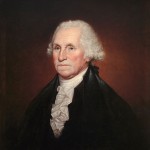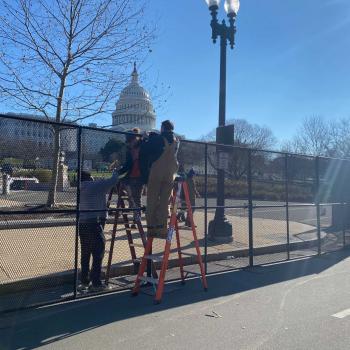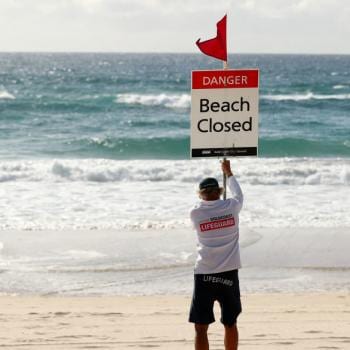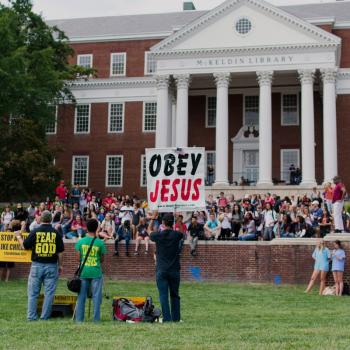Now that we have illiberal democracy in the United States, maybe we can also consider illiberal freedom. Andrew Bacevich does:
So the operative principle is this: Anything that enlarges choice is commendable. A recent Times story about the first women to complete army infantry training—“a towering milestone”—offers a vivid example. Young women “who dreamed of going into the infantry” now have those dreams come true, the Times reports, and with that “are no longer barred from the core combat positions that are the clearest routes to senior leadership.” Whether the quality of U.S. senior military leadership leaves something to be desired (it does) and whether gender imbalance at the top contributes to those deficiencies (who knows) are questions that the Times does not take up. What counts, and is to be applauded, is that nothing should impede women hankering to serve in combat from making it to the pinnacle of the military hierarchy.
On the other hand, anything that inhibits choice calls for critical examination. The traditional prohibition on suicide offers an example. The front-page treatment given to a story on “medically assisted death,” published in the Times one day after the feature on female grunts, illustrates the point.
This 7,000-plus word essay, spread across six pages and including photographs, provides a deeply sympathetic account of why and how John Shields chose to arrange for his own death. A former Catholic priest and lifelong spiritual seeker who had lived a full and consequential life, Mr. Shields was suffering from an incurable disease that condemned him to a wretchedly slow and painful demise. So he resolved to determine his own fate. In doing so, this exemplar of decency and virtue became something more: As depicted by the Times, in ending his life, Mr. Shields was expanding the very parameters of human freedom.
“Having control over the terms of his death,” according to the Times, “made him feel empowered over the disease rather than crippled by it.” So after bidding farewell to loving family and friends, and with the help of an obliging physician (“I’m coming here and John will be dead, so I guess technically I’m killing John. But that’s not how I think of it.”), he did it his way, with impressive dignity.
. . . The real story is this: Ours is an “Age of Autonomy,” in which received norms—the basis of freedom as my grandmother understood the term—are losing their authority. This is notably the case with regard to norms that derive from religious tradition. How and whether the forces displacing those norms—science, the market, Big Data, social media—will foster a durable basis for a morally grounded community is at present impossible to foresee.
My own hunch is that after being told for over sixty years that the United States was the leader of the free world, a time that also saw every POTUS frame every threat to the nation in terms of freedom versus tyranny (now terror — “they hate us for our freedom”), Americans sense that any limitation on freedom is authoritarian, despotic, and wicked. Of course, unlimited freedom would create a world of chaos, drivers not driving in lanes and consumers not paying bills. Order is a good thing that balances freedom. That’s why some conservatives want not simply liberty but ordered liberty.
But in an age of freedom, any restriction is a threat.












